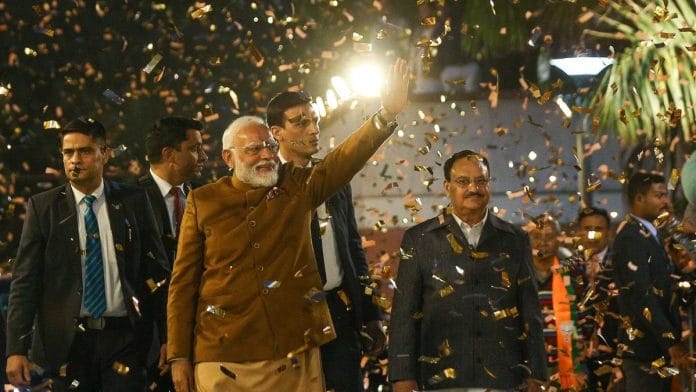The Uniform Civil Code (UCC) is among India’s most contentious constitutional goals, underscoring the tension between secular rule and religious diversity. Enshrined in Article 44, it demands a homogenous civil code for all citizens, but remains unimplemented. This contradiction raises concerns about Indian secularism, primarily about balancing legal frameworks with societal norms to assure both individual rights and community autonomy.
Personal laws differ by religious identity – Muslim women follow Sharia, Hindu women are subject to the Hindu Marriage and Succession Acts, Christian women to the Indian Christian Marriage Act, and Parsi women to the Parsi Marriage and Divorce Act. This showcases India’s diversity but creates inequality.
Women’s rights advocates claim discriminatory personal laws violate the commitments to equality and non-discrimination in Articles 14 and 15. Religious groups argue that UCC threatens their beliefs, undermining the fundamental right to religious freedom guaranteed in Article 25.
The Judiciary’s Role
Several landmark cases shaped the debate. The Shah Bano case (1985) allowed a divorced Muslim woman maintenance after the iddat period, leading to the Muslim Women (Protection of Rights on Divorce) Act, 1986. The Shayara Bano case (2017) ruled triple talaq unconstitutional, affirming that religion cannot justify practices that infringe on fundamental rights.
Gender Bias in Personal Laws
Personal laws highlight gender discrimination. Under Islamic law, men had sole authority to initiate divorce, while women required their husband’s approval or judicial intervention. Although triple talaq is now prohibited, disparity remains. Reforms in Hindu law, notably the Hindu Marriage Act, established equal grounds for divorce, though societal prejudices remain. Christian law imposes harsher criteria on women in adultery cases.
Inheritance laws also differ. The 2005 amendment to the Hindu Succession Act granted daughters equal inheritance rights to ancestral property. In Islamic inheritance laws, women are entitled to half of men’s shares – once considered progressive but now regarded as unequal. Parsi and Christian laws are predominantly gender-neutral.
Political and Religious Responses
Religious groups have largely opposed the UCC. All-India Muslim Personal Law Board argues Islamic law is divinely mandated and constitutionally protected. In contrast, Hindu nationalist groups are staunch proponents, though critics suggest their aim is dismantling Muslim personal law rather than attaining genuine gender equality. The Christian and Parsi communities display less resistance but remain wary of losing traditions.
Politically, BJP advocates UCC as essential for unity and equality, while opposition parties warn of minority rights infringements. Congress transitioned from early endorsements to caution, stressing prior consultation. This politicization has hindered rational debate.
Feminist Perspectives
Women’s rights groups remain divided. Some feminists viewed UCC as essential to combat discrimination, but now fear it may benefit majority politics. Many call for specific reforms in personal laws instead of an overhaul. Organizations, like All-India Democratic Women’s Association, stress reforms must engage women from all communities.
Implementation Challenges
The primary obstacle is balancing gender equality and religious freedom. For Muslims, particularly, personal law is intricately linked to faith.
Advocates insist equality and dignity must prevail, while detractors caution UCC may impose Hindu practices, since Hindu law has undergone reform while others haven’t.
Additionally, India’s diverse legal landscape complicates creating a widely acceptable code. Uncertainties persist regarding which traditions will underpin the code, how to resolve conflicts, and preserve diversity while guaranteeing equality.
Uttarakhand’s Experiment
The Uttarakhand Uniform Civil Code Act (2024) marks India’s inaugural state-level enforcement. It aligns marriage, divorce, inheritance, and live-in relationships across communities. Notable aspects include compulsory registration, equal inheritance rights for all offspring, consistent divorce grounds, and addressing polygamy, halala, and iddat.
Initial results are mixed. Positively, clearer inheritance rights for daughters and protection for women in interfaith marriages and live-in relationships are evident. However, community pushback, lack of awareness, and administrative challenges persist. Registration of live-in relationships is especially divisive; critics view it as intrusive, supporters as protective.
Uttarakhand demonstrates success requires consultation, awareness, and phased implementation. Moreover, societal attitudes must shift to convert legal rights into genuine empowerment.
International Comparisons
Internationally, France has a uniform civil code, but permits religious ceremonies. In the 1920s, Turkey implemented secular family law, demonstrating Islamic societies can embrace secular frameworks. Agreements like CEDAW mandate eradicating gender discrimination, emphasizing that religious freedom isn’t an excuse for inequality.
Conclusion
The UCC debate illustrates India’s challenge of reconciling unity with diversity, equality with freedom, and tradition with modernity. While eradicating gender discrimination is essential, reforms must be gradual and consultative. A gender-equitable UCC should ensure equal rights in marriage, inheritance, maintenance, reproductive health, and protection against violence, while respecting cultural diversity.
Experiences indicate UCC can work if thoughtfully constructed and implemented. Ultimately, it represents not just legal but social reform, hinging on dedication to justice and translating constitutional equality into reality for all Indian women, irrespective of religion.
These pieces are being published as they have been received – they have not been edited/fact-checked by ThePrint.


